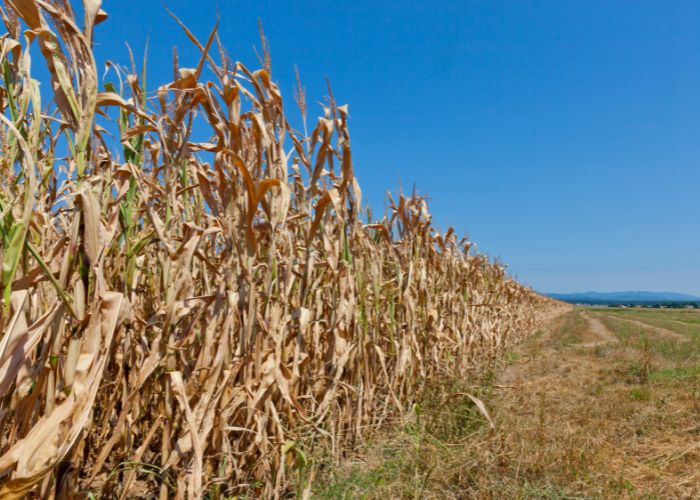MADRID – Large parts of Spain are suffering from drought. Water resources are particularly worrying in areas of Catalonia, Murcia, Castilla La Mancha and Andalucia. Consequently, the government has approved measures worth more than €2 billion.
Some of these measures are intended to help sectors affected by drought. According to government calculations, the investment exceeds €2.19 billion in fiscal, financial, social and labour measures and direct support in agriculture and water.
The latest data from the Ministry of Ecological Transition indicates a drop in water supplies to 48.9%. That means that the decline has been going on for five consecutive weeks.
Measures to combat drought
The Ministry of Ecological Transition and Demographic Challenge approved on Thursday 11 May an investment of €1.4 billion for various measures to tackle the drought and increase the availability of water resources.
Farmers who hold risk rights (irrigators) are exempted from the regulatory contribution and the water consumption contribution.
Another measure approved in the Royal Decree-law is the acceleration of the “immediate” construction of infrastructures in the basins affected by the drought for a budget of €35.5 million. According to Minister of Ecological Transition Ribera, “We can supply water this summer with it”.
In this line, the state will undertake the construction of desalination plants in Catalonia -with a plant in Tordera-, in Malaga and Almería, and recycling will be intensified in Alicante. The minister assumes that “they will not be operational this summer”.
Desalination plants powered by solar energy
The water organisation Acuamed gets the green light to start bidding for the construction of new desalination plants powered by photovoltaic solar farms. This is done through a direct management agreement with a donation of €600 million.
Regarding the drought in Doñana, permission has been granted to replace the groundwater pumps that supply the tourist resort of Matalascañas. In addition, permission has been given for the transfer of 3 cubic hectometres of water per year to reduce pressure. The works necessary to carry out this transfer and supply the municipality will be taken over by the state, as announced by the government.
Support and targeted measures for the agricultural sector
This extraordinary Council also approved several measures for the agricultural area affected by the drought. The economic impact of which amounts to more than €784 million.
Direct support to the primary sector
Agricultural insurance financing will be completed up to 70%. This is the legal maximum allowed by the European Union. Moreover, among other, it mainly concerns the following;
- dry crops
- olive groves
- almond trees
- kiwis
- sugar beets
- fodder maize
- wine grapes
Up to €355 million will be allocated to the beef and dairy sector, as it is “one of the most affected sectors”. The beekeeping sector will receive direct support of €5 million. And agriculture will benefit from the Fourth Direct Support Fund, which will be €276.7 million.
If farmers or pastoralists in areas with natural constraints have seen their yields drop by at least 20%, they will not have to pay taxes on their properties. They also do not have to pay income tax and corporate tax on the support they receive from the Common Agricultural Policy (PAC) for environmentally friendly agricultural practices.
In addition, a further €3 million will be made available as a guarantee for loans to agricultural companies. The deadline for submitting applications for support from the PAC has been extended to June 30, 2023.
Other measures have recently been taken to help farmers and livestock keepers affected by drought. They get tax cuts. In some cases, the benefit can be up to 25%, and in vulnerable situations even up to 30% or 50%.
Andalucia
The region of Andalucia is one of the hardest hit by drought. The government has therefore taken urgent action and allocated €163 million to alleviate the effects of the drought, of which €40 million will be spent on support for the agriculture and food sector.
The government has declared a state of emergency in Catalonia in 224 municipalities. This means there are restrictions on water use, namely 40% less for agricultural use and 15% less for industrial and recreational use.


